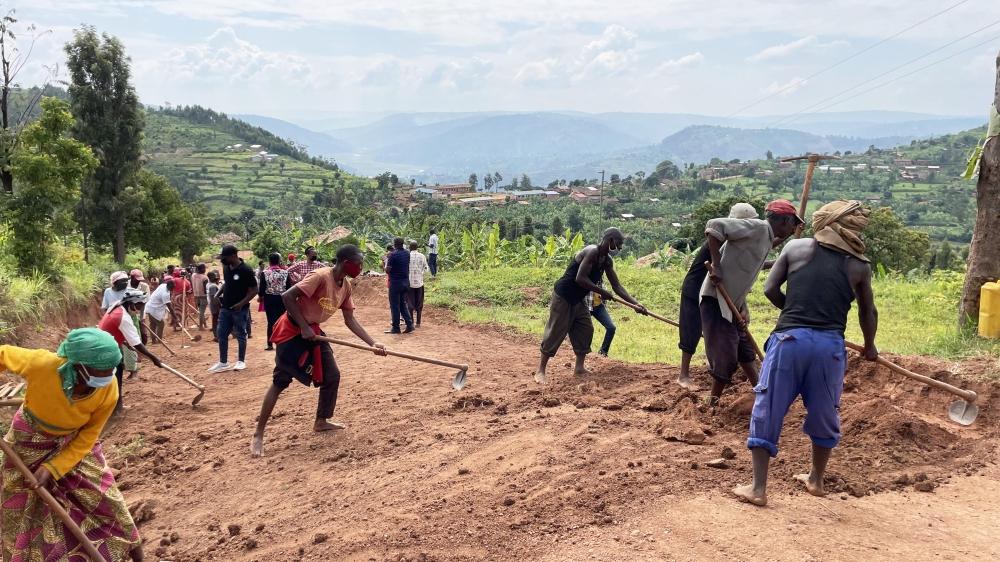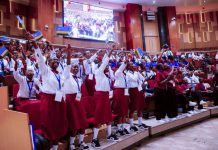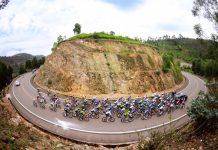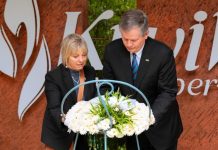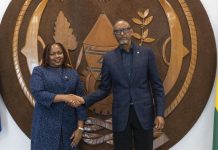Africa-Press – Rwanda. More poor and vulnerable households are set to get the much-needed support from the implementation of a $100 million (over Rwf105 billion) project that seeks to strengthen social protection programmes.
“During the project implementation the number of Vision Umurenge Programme(VUP) beneficiaries is expected to grow from 479,543 to 513,576 households comprising of over 1.53 million individuals or from 71.5 per cent to 74.5 percent of eligible households,” Jean de Dieu Nabimana, Acting Social Protection coordinator for Single Project Implementation Unit (SPIU) at LODA, told The New Times.
Nabimana indicated that 689,364 households need VUP support in Rwanda.
VUP is an integrated local development programme geared towards accelerating poverty eradication, rural development, and social protection in the country.
The $100 million financing ratification agreement for this Social Protection Transformation Project (SPTP) was approved by Parliament, on November 14.
The funding was provided by the World Bank’s International Development Association (IDA), of which one half is grant, while the other half is credit.
It is implemented by the Local Administrative Entities Development Agency (LODA), under the Ministry of Local Government (MINALOC).
The main objective of the social protection transformation project is to delivery systems and to improve access of poor and vulnerable households to human capital and economic inclusion services.
This project will support the social protection system through revised Vision Umurenge Programme (VUP), as approved by the cabinet on November 11, 2022, by emphasising the mindset transformation and building vulnerable families’ self-resilience.
It will also support the new innovation including shock responsiveness and continue with human capital development component nutrition-sensitive sensitive direct support and expended public works/ community/ home-based early child development.
On November 12, while providing details on the revised VUP, Assumpta Ingabire, the Minister of State in charge of Social Affairs at the Ministry of Local Government said that changes made to this programme include raising the wage given to the beneficiaries for the public works they carry in order to further improve their living conditions.
“What changed is that we increased the number of days a beneficiary is allocated for doing public works – we want that they increase from 72 to 100 – and the pay they were getting, from the previous Rwf1,000 to Rwf1,500 a day,” she said.
Project focus
According to LODA, the project will mainly support the human capital development component such as Nutrition sensitive direct support (NSDS) by expanding in 20 districts from 18 districts (new districts are Nyanza and Musanze) and expanded public works with focus on community home based early child development.
Under the NSDS, the Government provides cash transfers or nutritious food to vulnerable pregnant and breastfeeding mothers and their children in line with tackling malnutrition, and stunting among children.
The project will also support the implementation of the graduation strategy – consisting of integrated interventions to lift people out of poverty within two years – which the Cabinet also approved on November 11, 2022.
This is expected to be achieved through a livelihood component such as increasing the number of youth and adults from vulnerable/ poor households to be enrolled into Technical and Vocational Education and Training (TVET) – six-month training in different careers.
Other interventions in this regard include providing to a number of beneficiaries – 223,792 households – productive assets (small livestock, agriculture inputs and start up tools kits to persons who received trainings).
The project will also support the saving culture by promoting the long-term saving scheme (EjoHeza) among social protection beneficiaries, with a view to boost a saving culture among them.
The Government of Rwanda is also considering increasing the daily wage for classic labor-intensive public works beneficiaries and have around 10 per cent of the total increased daily wage earmarked for saving through EjoHeza, as per the project document.
Social safety nets
Social Safety Net (SSN) is mainly delivered through the flagship Vision 2020 Umurenge Program (VUP).
At its inception in 2008, the VUP had three components – unconditional cash transfers (Direct Support) to the poorest labour-constrained households, such as those with or caring for persons with disability; classic labor-intensive public works (cPWs) for poorest households with some labor capacity; and financial services through which micro-credits are provided to eligible individuals from poorest households [loans with low interest of 2 per cent per year].
According to the World Bank, Social safety nets expenditures [in Rwanda] have significantly increased over the last years but remain below Africa`s regional average.
Being the main component of Rwanda’s social protection, SSN expenditure, including administrative costs and spending on cash transfers, increased by 60 percent between the years 2016-17 and 2019-20, from Rwf78.8 billion to Rwf125.8 billion, the Bank indicated.
For More News And Analysis About Rwanda Follow Africa-Press

